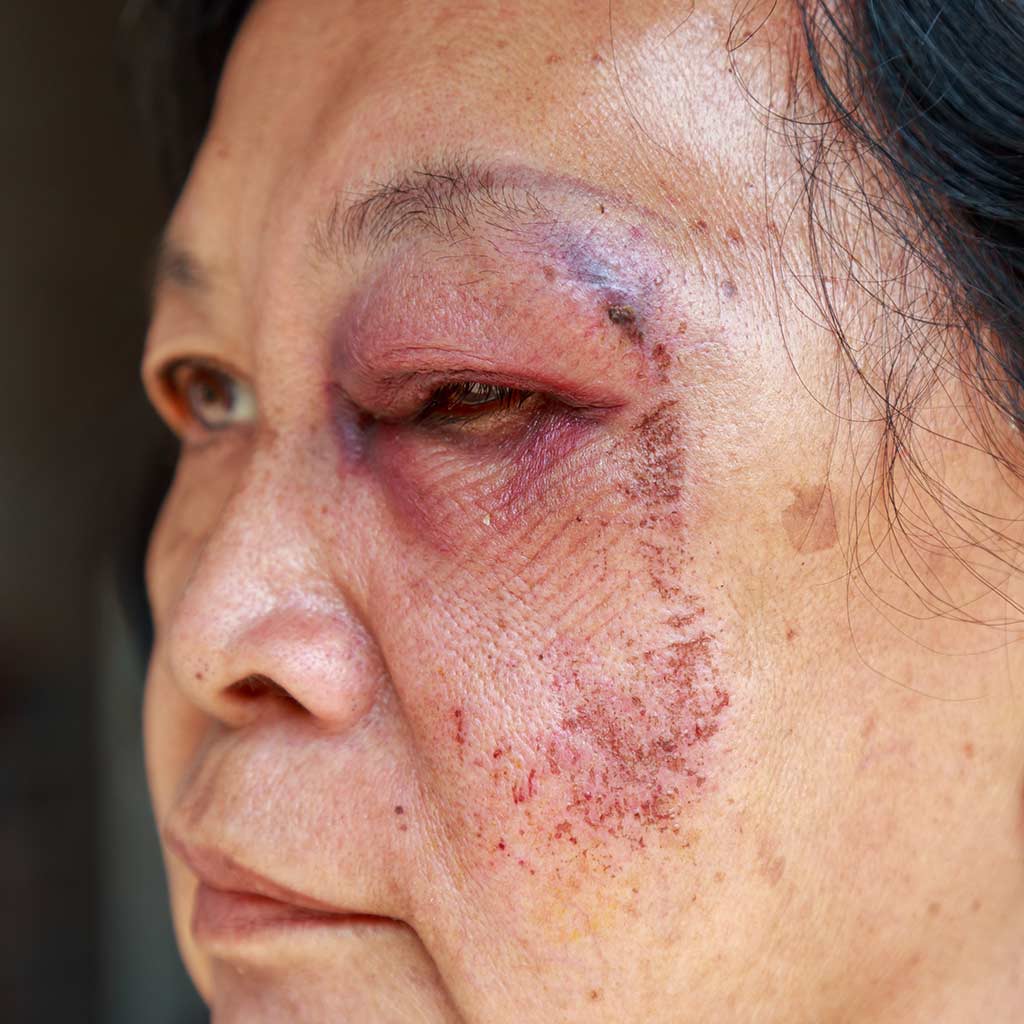April 28, 2020
In
Southern Illinois Elder Abuse Attorneys

Older Illinois Residents and Elder Abuse
As Illinois residents grow older and in some cases are alone, they become more vulnerable to those who would do them harm. Elder abuse is often an ongoing crime that leaves seniors injured physically, mentally and financially, and often affects them in their homes as Nursing Home Abuse and Neglect.
I Know Someone Who is a Victim of Elder Abuse. What Should I do?
If you or a senior citizen that you know has been abused, you should report it immediately and seek legal help. SI Elder Law can help if you or someone you know is a victim of elder abuse. Our firm focuses exclusively on elder law and civil law issues affecting seniors in Southern Illinois.
We investigate allegations of elder abuse and, when substantiated, work to end mistreatment, obtain medical assistance, and obtain the compensation the abuse victim is due. If you’ve seen any signs of elder abuse, any delay in taking action can be dangerous. Contact us at SI Elder Law today for a free consultation on what you should do next. Use the form or call us at (618) 997-3500.
What is Elder Abuse?
The National Center on Elder Abuse calls the abuse of senior citizens a growing problem as our population ages. Elder abuse is also referred to as a hidden epidemic, taking place behind closed doors and often never reported to authorities.
Definitions of elder abuse and senior neglect vary. In general, domestic elder abuse refers to mistreatment of a senior citizen committed by someone with whom the elder has a special relationship, such as a spouse, sibling, child, friend, or caregiver.
Another form of elder abuse may be perpetrated by others who come into contact with seniors, such as repairmen or representatives of other service providers or retail companies. Telephone scams that target seniors represent a form of elder abuse.
Definitions of elder abuse and senior neglect vary. In general, domestic elder abuse refers to mistreatment of a senior citizen committed by someone with whom the elder has a special relationship, such as a spouse, sibling, child, friend, or caregiver.
Another form of elder abuse may be perpetrated by others who come into contact with seniors, such as repairmen or representatives of other service providers or retail companies. Telephone scams that target seniors represent a form of elder abuse.

Contact Us
How we serve you better.
If you are a family member of the elder abuse victim or otherwise responsible for the senior in question, you should also contact a lawyer who concentrates on elder law in Illinois. An attorney can provide additional assistance that the state cannot, including independently investigating the elder adult’s situation and potentially seeking compensation for their losses.
You Need an Elder Abuse Lawyer if Your or a Senior You Know are Victims of:
Inflicting or threatening physical pain or injury on a vulnerable elder, or depriving them of a basic need is physical abuse. Hitting, slapping, kicking or otherwise striking, grabbing, pushing or pulling on an elderly adult a form of discipline or to get their attention is physical abuse. Telltale signs of signs of physical abuse might include contusions (bruises), lacerations (cuts), sprains and fractures (broken bones).
Inflicting mental pain, anguish or distress on an elder person through verbal or nonverbal acts is emotional abuse. This includes verbally criticizing, scolding, threatening, humiliating, or otherwise harassing an elder adult.
Any kind of unwanted sexual contact, or coercing someone to witness sexual behavior, including pornography, is sexual abuse. This includes nonconsensual sexual intercourse (rape), touching or groping the genitals or breasts, or even unwanted kissing. A person who is unable to understand or communicate due to dementia or another disability cannot legally consent to sexual contact.
Illegally taking, misusing, or concealing funds, property or assets of a vulnerable elder to the disadvantage of the elderly person or the profit or advantage of someone else is financial exploitation. This includes unfairly persuading an elder adult to change their will or beneficiary designations on insurance policies or other financial accounts or plans.
Passively or willfully denying an older adult food, clothing, shelter, medication, medical care, a therapeutic device or other physical assistance, and thereby exposing that person to the risk of physical, mental or emotional harm is also a form of abuse. This includes neglecting sanitation affecting food, clothing, shelter, etc.
Desertion of a vulnerable elder by anyone who has assumed the responsibility for that person’s care or custody is abandonment.
How Can I Tell if Someone is a Victim of Elder Abuse?
Victims of elder abuse may show injuries or illness caused by physical or sexual abuse or deprivation, and/or signs of mental deterioration. Emotionally abused elders may withdraw from contact or activities they recently enjoyed and are still physically capable of. They may appear fearful and skittish around certain individuals, who may be their abusers, enablers of the abuse or someone who reminds them of their abuser.
An elderly abuse victim may be isolated and afraid or unable to seek help for themselves. In many cases, the only person outside the family who sees the victim is a health care professional, home care provider, financial institution, or other professional working for the individual or family.
Anyone who suspects an elderly person is being abused or neglected should report it. Certain professionals and state employees in Illinois are required by law to report to the Department on Aging’s Adult Protective Services Program any suspected abuse, neglect or financial exploitation of an adult who because of a disability or other condition or impairment is unable to seek assistance.
An elderly abuse victim may be isolated and afraid or unable to seek help for themselves. In many cases, the only person outside the family who sees the victim is a health care professional, home care provider, financial institution, or other professional working for the individual or family.
Anyone who suspects an elderly person is being abused or neglected should report it. Certain professionals and state employees in Illinois are required by law to report to the Department on Aging’s Adult Protective Services Program any suspected abuse, neglect or financial exploitation of an adult who because of a disability or other condition or impairment is unable to seek assistance.

Reporting Suspected Elder Abuse in Illinois
The Illinois Department on Aging assists people over the age of 60 who may be victims of abuse as described above. Officials can intervene in response to reports of alleged abuse, neglect and financial exploitation of older adults who are living in the community (as opposed to in an institution, like a nursing home), and work with the older adult to resolving the abusive situation.
If you think an elder adult in Illinois is being abused or neglected, you should phone the Department of Aging’s Adult Protective Services Hotline at 1-866-800-1409, or 1-888-206-1327 (TTY). Your name will be kept confidential by Adult Protective Services. Be prepared to provide:
If you think an elder adult in Illinois is being abused or neglected, you should phone the Department of Aging’s Adult Protective Services Hotline at 1-866-800-1409, or 1-888-206-1327 (TTY). Your name will be kept confidential by Adult Protective Services. Be prepared to provide:
- The alleged victim’s name, address, telephone number, sex, age and general condition
- The alleged abuser’s name, sex, age, relationship to victim and condition
- Why you believe that the older person is being abused, neglected or financially exploited, with as much specificity as possible
- Whether the alleged victim is in immediate danger, the best time to contact the person, whether he or she knows of the report, and whether there may be any danger to the state worker who goes to investigate
- Whether you think the client could make a report themselves
- Your name, telephone number and profession
- The names of others with information about the situation
- Whether you are willing to be contacted for further information
- Any other relevant information
It should be noted that a competent elder adult has right to self-determination and may refuse all services and interventions. But most elders who are being abused do accept assistance from the state.
Elder Abuse of Adults with Dementia or other Cognitive Impairments: Where an adult has dementia or another form of cognitive impairment, Adult Protective Services will assess the situation and may petition the court for guardianship to ensure that the individual’s needs are met. Guardianship and nursing home placement are always the last resort.
If you think an elder adult in Illinois is being abused or neglected, you should phone the Department of Aging’s Adult Protective Services Hotline at 1-866-800-1409, or 1-888-206-1327 (TTY). Your name will be kept confidential by Adult Protective Services. Be prepared to provide:
Elder Abuse of Adults with Dementia or other Cognitive Impairments: Where an adult has dementia or another form of cognitive impairment, Adult Protective Services will assess the situation and may petition the court for guardianship to ensure that the individual’s needs are met. Guardianship and nursing home placement are always the last resort.
If you think an elder adult in Illinois is being abused or neglected, you should phone the Department of Aging’s Adult Protective Services Hotline at 1-866-800-1409, or 1-888-206-1327 (TTY). Your name will be kept confidential by Adult Protective Services. Be prepared to provide:
How an Elder Abuse Lawyer from SI Elder Law Can Help You
The Illinois Elder Abuse and Neglect Act directs the state to investigate complaints about elder abuse, and criminal law provides for the punishment of those who harm senior citizens. But an attorney from SI Elder Law can go further than state and local officials, including investigating the situation, monitoring the state’s investigation and any actions taken, and potentially seeking compensation for the abuse victim’s losses due to medical expenses, property or financial damage or loss, and pain and suffering.
Don’t delay if you have reported elder abuse to the state or if you are concerned about a situation and need legal advice. A personal injury lawsuit typically must be filed within two years of the complaint of abuse or injury to avoid the Illinois’ statute of limitations.
As your attorneys, we can also work with you and your family to provide or obtain assistance your elderly family member may need. Beyond providing legal advice and assistance, we can make referrals to various professionals in our network formed over decades of work for seniors in Southern Illinois.
SI Elder Law provides free initial consultations in cases of suspected elder abuse or neglect. If you have concerns about how someone you care about is being treated, contact SI Elder Law for help today.
Don’t delay if you have reported elder abuse to the state or if you are concerned about a situation and need legal advice. A personal injury lawsuit typically must be filed within two years of the complaint of abuse or injury to avoid the Illinois’ statute of limitations.
As your attorneys, we can also work with you and your family to provide or obtain assistance your elderly family member may need. Beyond providing legal advice and assistance, we can make referrals to various professionals in our network formed over decades of work for seniors in Southern Illinois.
SI Elder Law provides free initial consultations in cases of suspected elder abuse or neglect. If you have concerns about how someone you care about is being treated, contact SI Elder Law for help today.
